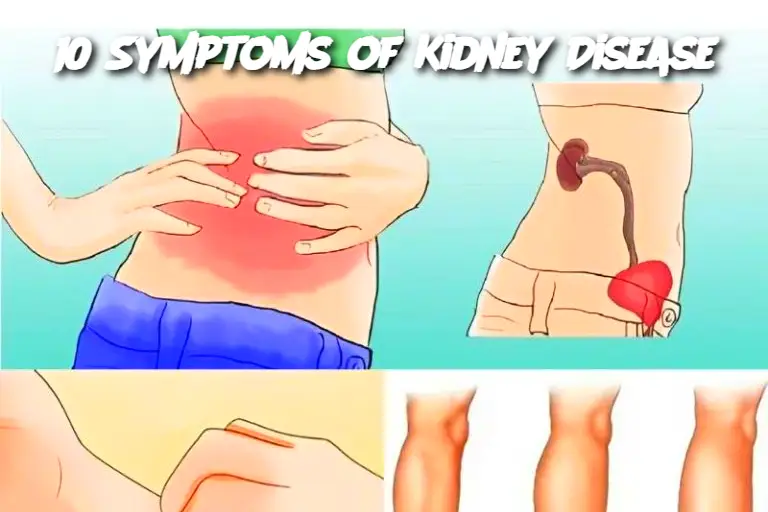ADVERTISEMENT
Kidney disease, often referred to as renal disease, is a medical condition that affects the kidneys' ability to filter waste and excess fluid from the blood. It can develop slowly and often shows no symptoms in its early stages. However, as the disease progresses, certain symptoms may appear that can indicate kidney dysfunction. Recognizing these symptoms early on is crucial to managing and potentially reversing kidney damage.
Introduction
Kidney disease can manifest in various ways, and the symptoms may vary depending on the stage of the disease. Many individuals might not experience noticeable symptoms until the kidney function is significantly compromised. Being aware of the signs can help in early detection and treatment, preventing further complications. Here are 10 common symptoms of kidney disease to watch out for.
1. Fatigue and Weakness
When the kidneys are not functioning properly, waste products and toxins build up in the bloodstream. This can lead to feelings of constant tiredness or weakness, which is a common symptom of kidney disease. Fatigue occurs because the kidneys are unable to produce adequate amounts of erythropoietin, a hormone that stimulates the production of red blood cells.
2. Swelling in the Legs, Ankles, and Feet
The kidneys play a significant role in regulating fluid balance in the body. When they are not functioning well, excess fluid may accumulate, leading to swelling in the lower extremities, such as the legs, ankles, and feet. This swelling, also known as edema, is often more noticeable in the evening or after standing for long periods.
3. Frequent Urination
One of the most noticeable signs of kidney disease is changes in urination patterns. This can include an increased need to urinate, especially at night (nocturia). In some cases, the urine may appear foamy or bubbly, which can be a sign of protein in the urine – a condition known as proteinuria, common in kidney disease.
4. Blood in Urine (Hematuria)
The presence of blood in the urine is a serious symptom that may indicate kidney damage or disease. The urine may appear pink, red, or brown, and it could be a sign of kidney stones, infections, or glomerulonephritis, an inflammation of the kidney's filtering units.
5. Pain or Pressure in the Back or Sides
Kidney disease can cause pain in the back or sides, specifically in the area where the kidneys are located (the lower back). This pain can be sharp or dull and may be associated with kidney infections or kidney stones. If the pain is persistent or severe, it's essential to seek medical attention.
6. Shortness of Breath
If kidney function is significantly impaired, excess fluid may build up in the lungs, leading to shortness of breath. This can occur even without physical exertion, and individuals may feel breathless during rest or while lying down. Difficulty breathing can be a sign of severe kidney disease or heart failure.
7. Nausea and Vomiting
The accumulation of toxins in the bloodstream due to kidney dysfunction can lead to nausea and vomiting. This symptom often appears when kidney disease has advanced to the point where the kidneys can no longer effectively filter waste. The feeling of being unwell can persist throughout the day.
8. High Blood Pressure (Hypertension)
Kidney disease can cause high blood pressure, and high blood pressure can also damage the kidneys. The kidneys help regulate blood pressure through the renin-angiotensin system, but when they are damaged, their ability to control blood pressure decreases, often leading to hypertension.
9. Loss of Appetite
ADVERTISEMENT
